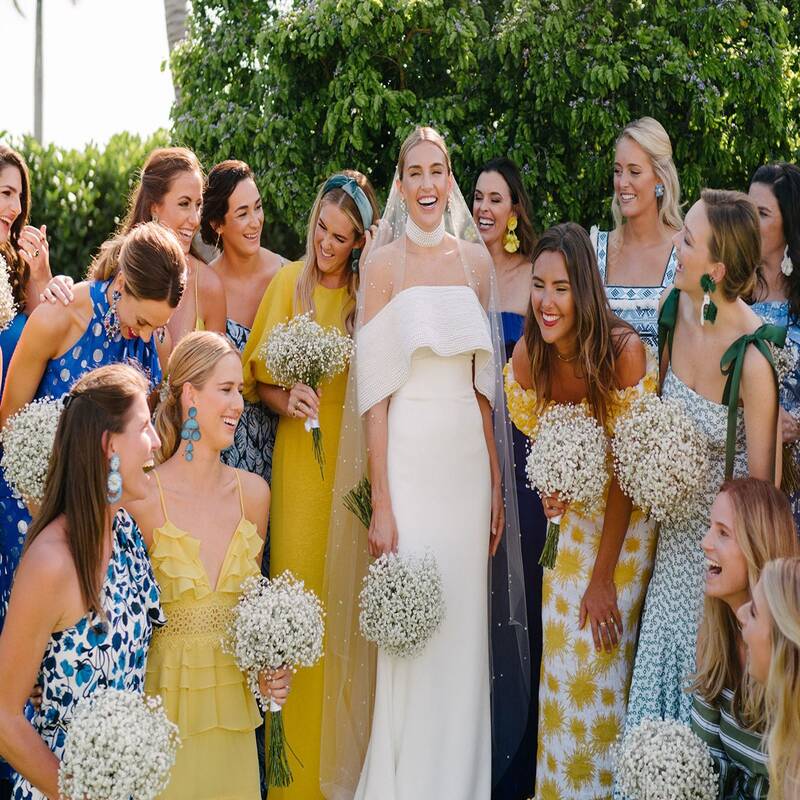Introduction to Wedding Invitation Timing
Choosing when to send wedding invitations can be tricky. You want to ensure guests have enough time to prepare. Start by considering several factors that influence your decision. These include whether you’ve sent save-the-date cards, the size of your guest list, and the date and location of your wedding. Another key point is the timing for RSVPs, which affects your final headcount and details for the venue. In this section, we’ll explore these aspects further, helping you decide the best time to send out your invites.
The Importance of Save the Date Cards
Sending ‘save the date’ cards is crucial for organizing your wedding. These cards alert guests to reserve your wedding date in advance. They are especially useful if you’re planning to have a long engagement or if your wedding coincides with a busy season. By sending them, you also give your guests ample time to arrange travel and accommodations if needed.
Advantages of Save the Date Cards
- Early Notice: They provide an early reminder for your guests to keep the date free.
- Travel Planning: Particularly helpful for destination weddings or out-of-town guests.
- Prevents Scheduling Conflicts: Guests can avoid booking other events on your wedding day.
When to Send Save the Date Cards
For a local wedding, sending them 6-8 months in advance is standard. However, for a destination wedding or during peak seasons, consider sending them 8-12 months ahead. This ensures that guests have plenty of time to prepare and book necessary arrangements.
Save the date cards signal a courteous heads-up. They represent a prelude to the formal invitation. Their use can potentially decrease guest list uncertainties and last-minute RSVP changes. Remember to include essential details like your names, wedding date, and location. A line indicating that a formal invitation will follow is customary.

Guest Awareness and Formality of Invitations
When planning your wedding, it’s essential to consider how well your guests are informed about the event. This knowledge can significantly influence when you should send out your wedding invitations.
Understanding Guest Awareness
Guest awareness plays a crucial role in the timing of your wedding invitations. If most of your guests are close family and friends who are likely already aware of your wedding date through word of mouth or informal save-the-date messages, you might afford to send the formal invitations a bit later.
However, if your wedding includes many guests who might not be in close contact or are part of your extended network, sending invitations earlier is wise. This ensures everyone has ample time to prepare and avoid any scheduling conflicts.
The Role of Formality in Sending Invitations
The formality of your invitations also affects when they should be mailed. For a formal wedding, it’s respectful to give guests more notice, potentially sending invitations out 4 to 6 months in advance. This not only reflects the significance and formality of the event but also gives your guests adequate time to prepare for such an occasion.
For a less formal or casual wedding, invitations can be sent out a bit closer to the date, around 2 to 3 months prior. This timeline still offers enough planning time for guests but reflects the casual nature of the event.
Overall, understanding the level of guest awareness and the formality of your wedding helps in planning the perfect timing for sending out your wedding invitations.
The Impact of Guest List Size on Invitation Timing
Smaller Guest Lists
For intimate weddings with fewer guests, invitations can be sent closer to the date. Smaller guest lists typically mean you’re inviting people already aware of your event. You likely won’t need as much time for them to adjust their schedules. Aim for a 2-3 month lead time for your wedding invitations.
Larger Guest Lists
With a larger guest list, sending invitations earlier is a smart move. More guests often mean more logistics and a greater chance of scheduling conflicts. For a large wedding, consider sending out invitations 3-4 months in advance. This gives everyone ample time to plan accordingly.
Very Large Celebrations
If you’re hosting a grand event with a significant number of invitees, you might even extend the invitation period. Aim for 4-6 months before your wedding day, especially if many guests will need to travel. Longer lead times help ensure that your guests can make necessary arrangements without feeling rushed.
In all cases, remember to include all the critical details they’ll need to know. Details such as the date, time, venue, and a note about the forthcoming RSVP request are essential. Keep in mind that no matter the size of your guest list, providing clear information is key to avoid confusion and last-minute hiccups.

Seasonal Considerations for Wedding Invitations
Considering the season in which your wedding will take place is crucial for sending invitations. Each season has its own set of challenges and opportunities. Here’s what to consider:
Spring and Summer Weddings
- Peak Season: This is a busy time for weddings, especially between May and September.
- Advance Notice: Send invitations earlier. Aim for four to six months before the wedding.
- Holiday and Travel: Guests may have vacation plans. Early invites help them plan better.
Autumn and Winter Weddings
- Off-Peak Season: Fewer weddings occur, which might mean less competition for dates.
- Weather Considerations: Inclement weather can affect travel plans.
- Timing: Three to four months ahead should be sufficient unless it’s around major holidays like Christmas.
Special Holiday Seasons
- Consider Holiday Plans: If your wedding is near a major holiday, send invitations even earlier.
- Guest Availability: Holidays might mean more availability for local guests but less for those traveling.
By adapting to the seasonal context of your wedding, you ensure better attendance and less stress for your guests.
Destination Weddings and Travel Arrangements for Guests
When planning a destination wedding, the timing of your invitation dispatch becomes even more critical. Considering the extra steps your guests will need to take to attend your nuptials — such as booking flights and accommodations — you must give them ample time.
Advanced Timing for Destination Invitations
For most destination weddings, it’s advisable to send invitations out at least six months in advance. This timeframe allows guests to:
- Research Flights: They can look for the best deals and options.
- Book Hotels: They can reserve rooms, potentially at a group rate.
- Request Time Off: They can inform their employers and arrange for time away.
- Budget Accordingly: They can plan for the expenses of attending your wedding.
Consider Seasonal Travel Constraints
Travel during peak seasons can be challenging. If your wedding date falls during such times, consider sending invitations up to eight months ahead. This ensures your guests won’t face booking issues or inflated prices.
Accommodation Tips
Provide information on suggested accommodations with your invites. Include options at various price points to cater to different budgets. Also, consider reserving a block of rooms to secure space for your guests.
Communicate Regularly
After your invitations are out, stay in touch with attendees. Offer help with planning their trip and update them on any changes or additional details they should know. Regular communication eases travel concerns and builds anticipation for your special day.
By prioritizing your guests’ travel arrangements in your invitation timing, you ensure everyone has the best chance to attend and enjoy your destination wedding without stress.

Factoring in RSVPs and Venue Requirements
When planning your wedding invitations, don’t forget RSVPs and your venue’s needs.
Understanding RSVP Timing
RSVPs help finalize your guest count. Include a response deadline on your invites. This prompts quick replies from guests. Aim to set the RSVP deadline three to four weeks before the big day. This gives you time to follow up with non-responders.
Venue’s Final Headcount Deadline
Venues and caterers require a final headcount. Ask them for their deadline. Plan to receive all RSVPs at least one to two weeks before this date. You’ll need time to make any last adjustments.
Coordinating with Caterers and Vendors
Caterers and vendors also need timely info. Share your expected guest count with them. Don’t wait till the last minute. Doing so helps them prepare for your event smoothly.
Including an RSVP Card
Sending an RSVP card with your invitations can ease the response process. Encourage guests to reply swiftly by making it convenient.
By being mindful of these logistics, you can better plan your invitation and RSVP timeline. This ensures a well-organized wedding. Remember, setting clear deadlines is key to managing your event successfully.
Final Recommendations for Sending Out Wedding Invitations
When planning your wedding invitations, consider these key points to ensure a smooth process:
Start Early
Begin planning your invitations as early as possible. This gives you more time to design, revise, and mail them out. Early planning avoids last-minute rushes and potential delays.
Customize Timing Based on Circumstances
Adjust invitation timing based on several factors:
- For destination weddings, send invitations six to eight months in advance.
- For local weddings during peak seasons, send four to six months ahead.
- If you have many out-of-town guests, consider sending invitations earlier.
Utilize Save the Date Cards
‘Save the date’ cards are very helpful. They let guests prepare earlier, especially for booking travel and accommodations. Send these out before the wedding invitations.
Allow Time for RSVPs
Set an RSVP deadline about three to four weeks before your wedding date. This helps finalize your guest list and communicate numbers to your venue and caterers.
Plan for Venue and Vendor Deadlines
Understand when your venue and vendors need final details. Plan to send invitations in a way that aligns with these deadlines. This prevents any last-minute issues.
Include All Necessary Information
Make sure your invitations include all critical details. These include the date, time, venue, dress code, and RSVP information. Clear communication reduces confusion and ensures guests have everything they need.
By following these recommendations, you can effectively manage your wedding invitation timeline for a successful and stress-free event. Remember to keep your guest’s convenience in mind and provide them with all the information they need to attend your special day happily.
